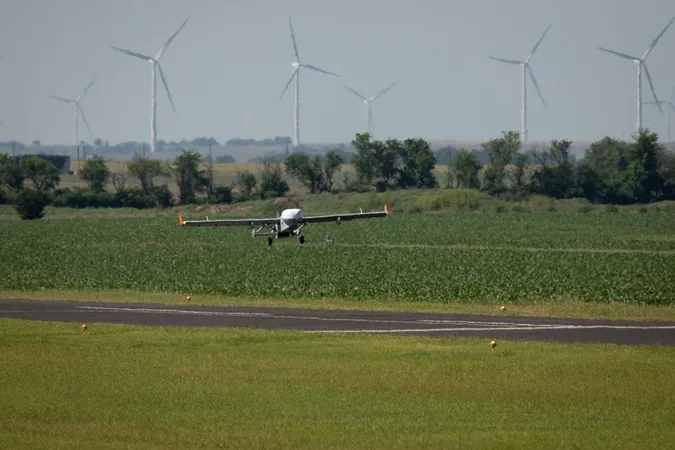
Alarm Bells Ring as Global Surface Temperatures Surge: A Historic Shift Unmatched in 485 Million Years!
2024-09-22
In an eye-opening study led by climate researcher Emily Judd from the University of Arizona, scientists warn that global surface temperatures are climbing faster than at any point in the past 485 million years. By synthesizing over 150,000 fossil data points with advanced climate models, Judd's team reveals startling insights into our planet's climatic history, emphasizing that the current rate of warming is unprecedented.
Did you know that for nearly half a billion years, temperatures on Earth have gone through drastic fluctuations? This new research published in the journal Science on September 20, 2024, indicates that temperatures have never risen as rapidly as they are doing today. Think about that—this is a monumental moment in Earth’s history!
What This Groundbreaking Study Reveals
The comprehensive research spans what scientists call the Phanerozoic Eon, beginning with the emergence of multicellular life. Notably, it illustrates that while Earth has experienced warmer temperatures historically, humans evolved during much cooler periods. As Judd explains, “We now understand that the current trajectory of temperature increase is unlike anything seen in the past 485 million years.”
The study introduces a model known as PhanDA, which reconstructs global mean surface temperatures (GMST) across the Phanerozoic. It found a temperature range between 11°C to 36°C, challenging previous assumptions about Earth's climate stability. This research paints a clear picture: CO2 levels are the primary driver of climate dynamics and temperature spikes.
Historical Context and Future Implications
What makes this research particularly alarming is the correlation between rapid temperature increases and catastrophic events throughout Earth’s history, including major mass extinctions. For instance, around 250 million years ago, volcanic activity released tremendous amounts of CO2, raising temperatures by over 10°C within a mere 50,000 years. Judd emphatically stated in an interview that “the speed of these changes can outpace the adaptation of both flora and fauna.”
Throughout most of the Phanerozoic, average temperatures exceeded 22°C, indicating that cold climates like our current one are truly anomalies, existing only 13% of the time. This reality emphasizes a crucial point: while ancient life thrived in warmer conditions, humanity has prepared its civilization around icehouse climates.
The Path Forward: Urgent Action Required
The study serves as a clarion call for immediate action against climate change. Researchers predict that if current warming trends continue unchecked, global temperatures could soar by an additional 5°C by century's end, reaching levels unseen since the Miocene epoch over 5 million years ago.
Bill McKibben, a climate advocate, warns that our survival hinges on a radical shift from fossil fuels to renewable energy sources. “The sun and wind are our best hopes for a sustainable future,” he urged. Additionally, financial systems are poised to back green investments—if profit-driven motives allow it.
Indeed, time is running out. The urgency of this research cannot be overstated, and it underlines a universal truth: without immediate and transformative changes to our energy systems and climate policies, Earth could soon become inhospitable for human life. The question now is whether we can act decisively enough before it's too late.
In conclusion, this landmark study emphasizes the critical crossroads we face. While the Earth has been receptive to many climates throughout history, the rapid changes we initiate today could irrevocably alter our existence. It’s a race against time—will we choose a sustainable future, or will history repeat itself with grim consequences? Stay informed, stay engaged, and together let’s advocate for our planet's future!




 Brasil (PT)
Brasil (PT)
 Canada (EN)
Canada (EN)
 Chile (ES)
Chile (ES)
 España (ES)
España (ES)
 France (FR)
France (FR)
 Hong Kong (EN)
Hong Kong (EN)
 Italia (IT)
Italia (IT)
 日本 (JA)
日本 (JA)
 Magyarország (HU)
Magyarország (HU)
 Norge (NO)
Norge (NO)
 Polska (PL)
Polska (PL)
 Schweiz (DE)
Schweiz (DE)
 Singapore (EN)
Singapore (EN)
 Sverige (SV)
Sverige (SV)
 Suomi (FI)
Suomi (FI)
 Türkiye (TR)
Türkiye (TR)